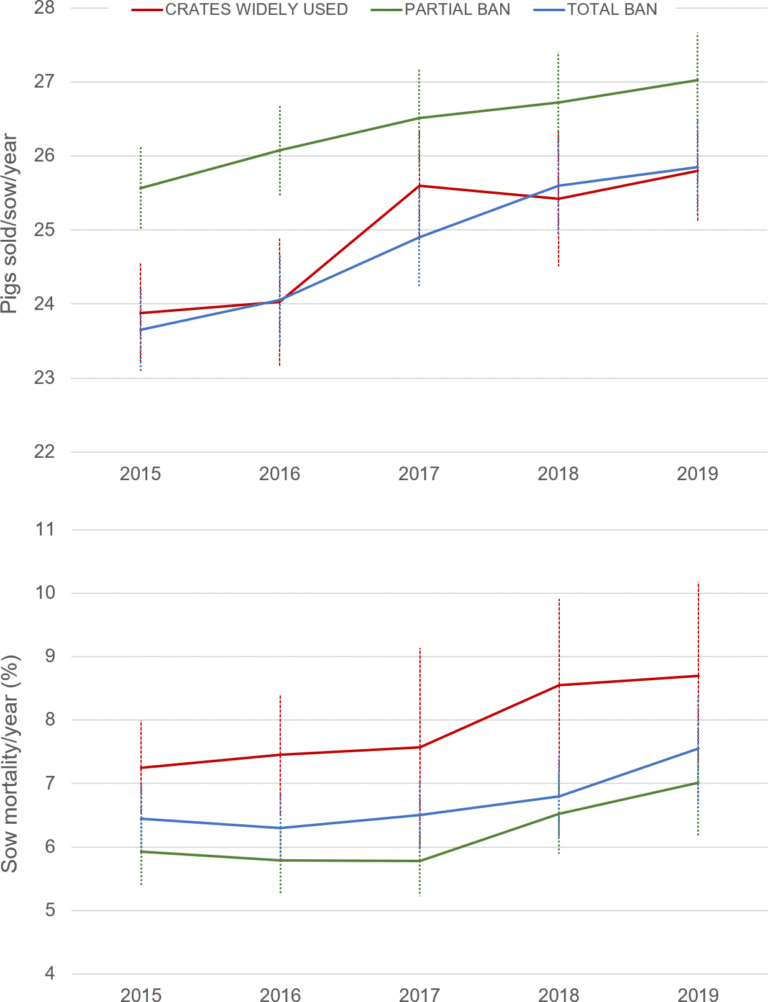
Defining Affective Experiences
How to Define Affective Experiences for Analysis: Striking the Right Level of Detail Cynthia Schuck-Paim & Wladimir Alonso The Welfare Footprint Framework (WFF) is designed to quantify the welfare impact
We have just published the first version of a Brief Report “Productivity of mother pigs is lower in countries that still confine them in gestation crates“, in the journal F1000 Research.
Using publicly available data from InterPig, a network of pig production economists in 17 countries that provides internationally harmonized methods for meaningful comparisons of national production data, the report show that sow mortality is significantly higher, and annual pig production per sow significantly lower, in those countries where gestation crates are still the norm compared to countries in the European Union, where use of gestation crates is restricted to up to four weeks after insemination. The main results are shown below:

In the case of productivity, the graphs shows no difference between those countries where gestation crates are widely used, and where they have been completely banned. The latter group, however, is composed of only two countries (Sweden and the United Kingdom), with data in the UK reflecting a blend of indoor and free-range systems.
The observation that sow mortality is lower, and productivity higher, where crates have been restricted with an industry-validated dataset speaks against industry-claims on the contrary. It also validates research showing that improving maternal welfare improves disease resistance, resilience and survival of piglets.
Overall, this is good news for efforts focusing on the transition of female breeders to crate-free housing conditions.
The new paper is available here: https://f1000research.com/articles/11-564/v1

How to Define Affective Experiences for Analysis: Striking the Right Level of Detail Cynthia Schuck-Paim & Wladimir Alonso The Welfare Footprint Framework (WFF) is designed to quantify the welfare impact

Confounding Factors in Welfare Comparisons of Animal Production Systems Wladimir J Alonso, Cynthia Schuck-Paim Controlled experiments—where variables are deliberately manipulated to establish cause-and-effect relationships—are the gold standard for drawing reliable

Borrowing the Knowns and Unknowns Framework to Reveal Blind Spots in Animal Welfare Science Wladimir J Alonso, Cynthia Schuck-Paim There is always a risk of fixating on what we already
